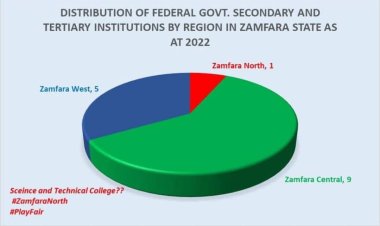Skill Mismatch Worsening Graduate Unemployment in Nigeria, says UI Don
Professor Ifeanyi Onyeonoru, Director of the Career Development and Counselling Center at the University of Ibadan, has warned that skill mismatch is worsening graduate unemployment in Nigeria.

Professor Ifeanyi Onyeonoru, Director of the Career Development and Counselling Center (CDCC) at the University of Ibadan, has highlighted that skill mismatch is exacerbating graduate unemployment in Nigeria. He pointed out that many graduates lack the requisite skills needed by employers in today’s rapidly changing job market.
Speaking at a career support program organized by the CDCC for students, Onyeonoru emphasized that the fast-paced technological advancements of the 21st century demand new skill sets for employability and relevance in the workplace. He stated, “Each industrial revolution era significantly determines the nature of adaptable skills evident in the way people think, organize production, and achieve success.”
The professor noted that the 4th industrial revolution is characterized by smart machines and advanced production systems that can autonomously exchange information and control processes without human intervention. He urged students to be proactive and adaptable, equipping themselves with the skills necessary for success in this new era.
Additionally, Professor Kayode Adebowale, Vice Chancellor of the University of Ibadan, underscored the importance of career support within the university system. He explained that career development fosters a sense of purpose and enables students to engage with their talents, helping them develop professional skills aligned with their aspirations.
Adebowale further added, “With clear career goals and a focused academic path, students are more likely to remain motivated and engaged, leading to fulfilling and productive future careers.”
As Nigeria faces rising graduate unemployment, experts like Onyeonoru and Adebowale emphasize the urgent need for educational institutions to adapt their curricula to meet the evolving demands of the job market, ensuring that graduates possess the skills necessary to thrive.

 Chris Oyeoku Okafor
Chris Oyeoku Okafor 



